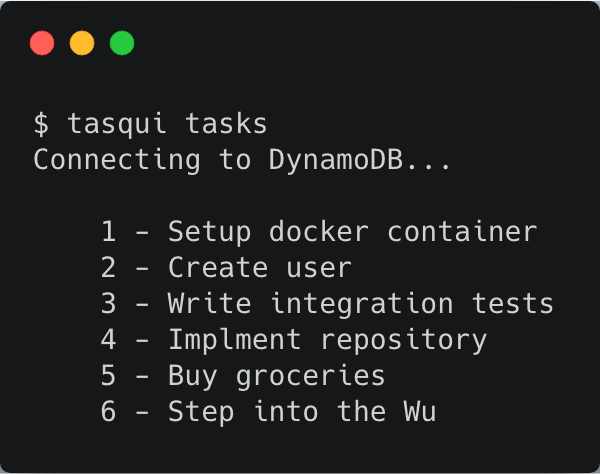
- Por André Guelfi Torres
- ·
- Publicado 13 Feb 2019
In one of our evening apprenticeship meetings, a pair was doing the Bowling Kata in Java. After reviewing their code, I thought that it would be a good idea to do it myself.
Every craftsman at Codurance is a polyglot developer and, although we have very similar values, we all have our own preferences when it comes to programming languages and coding styles. As you can imagine, we cannot always avoid cracking a joke or two about all the languages we don’t like so much but other craftsmen in the company do. So, just for fun, quite a few of us decided to do the same kata using our language of choice. It was great to see the same problem solved with different languages. Although there are still a few craftsmen and apprentices working on solving the kata in different languages, here are 3 of my favourite solutions so far (in no particular order):
(ns bowling.core-test
(:require [clojure.test :refer :all]
[bowling.core :refer :all]))
(deftest bowling
(testing "strikes for all rolls"
(is (= 300 (score "XXXXXXXXXXXX"))))
(testing "normal scores"
(is (= 99 (score "91919393929291219191"))))
(testing "normal scores or misses"
(is (= 90 (score "9-9-9-9-9-9-9-9-9-9-")))
(is (= 93 (score "919-9-9-9-9-929-9-9-"))))
(testing "mixture of stikes and normals"
(is (= 98 (score "9-X8-9-9-9-9-9-9-9-")))
(is (= 104 (score "9-X8-9-9-9-9-9-9-X23")))
(is (= 28 (score "--X81--------------")))
(is (= 27 (score "--X8-1-------------"))))
(testing "spares for all rolls"
(is (= 150 (score "5/5/5/5/5/5/5/5/5/5/5"))))
(testing "mixture of spares and normals"
(is (= 82 (score "9-8/--9-9-9-9-9-9-9-")))
(is (= 84 (score "9-8/--9-9-9-9-9-9-9/1")))
(is (= 12 (score "--8/1---------------")))
(is (= 11 (score "--8/-1--------------")))))
(ns bowling.core)
(defn- spare?[s] (= \/ s))
(defn- strike? [s] (= \X s))
(defn- spare-or-strike? [s] (or (spare? s) (strike? s)))
(defn- miss? [s] (or (= nil s) (= \- s)))
(defn- score-for [s]
(cond
(spare-or-strike? s) 10
(miss? s) 0
:else (read-string (str s))))
(defn- score-roll [this-roll rem-rolls]
(cond
(strike? this-roll) (+ 10 (score-for (first rem-rolls)) (score-for (first (rest rem-rolls))))
(spare? this-roll) (+ 10 (score-for (first rem-rolls)))
(spare? (first rem-rolls)) 0
:else (score-for this-roll)))
(defn- score-rolls [acc rolls]
(if (seq rolls)
(let [running-score (+ acc (score-roll (first rolls) (rest rolls)))]
(score-rolls running-score (rest rolls)))
acc))
(defn- expand-strikes [rolls]
(seq (reduce str (map #(if (strike? %) "X-" (str %)) (seq rolls)))))
(defn- deduct-extra-rolls [score rolls]
(- score (score-rolls 0 (drop 20 (expand-strikes rolls)))))
(defn score [rolls]
(deduct-extra-rolls (score-rolls 0 (seq rolls)) rolls))
See on Mash's GitHub
namespace BowlingV2.FSharpKatas
module Bowling =
open System
type private Rolls = Strike | Spare | Roll
type private Pins = Pins of int
type private Roll = Rolls * Pins
let private maxRolls = 20
let private maxPins = 10
let private noPins = 0
let private pinCountForRoll roll =
let (Pins pins) = snd roll
pins
let private pinsFromRawRoll rawRoll =
Pins (Int32.Parse(rawRoll.ToString()))
let private sparePinsFromRawRoll rawRoll =
Pins (maxPins - Int32.Parse(rawRoll.ToString()))
let private parse roll index rolls =
let previousRoll = fun () -> Seq.item (index - 1) rolls
match roll with
| '-' -> Roll, Pins noPins
| '/' -> Spare, sparePinsFromRawRoll(previousRoll())
| 'X' -> Strike, Pins maxPins
| r -> Roll, pinsFromRawRoll r
let private scoreRoll index rolls =
let bonusRoll = fun(lookAhead) ->
if index + lookAhead < Seq.length rolls
then pinCountForRoll (Seq.item (index + lookAhead) rolls)
else noPins
let exceedsMaxRolls = fun() ->
rolls
|> Seq.take index
|> Seq.map (fun r -> match r with | (Strike, _) -> 2 | _ -> 1)
|> Seq.sum >= maxRolls
match Seq.item index rolls with
| (_, _) when exceedsMaxRolls() -> noPins
| (Spare, Pins pins) -> pins + bonusRoll 1
| (Strike, Pins pins) -> pins + bonusRoll 1 + bonusRoll 2
| (Roll, Pins pins) -> pins
let scoreGame rolls =
let parsedRolls = rolls |> Seq.mapi (fun index roll ->
parse roll index rolls)
parsedRolls
|> Seq.mapi (fun index _ -> scoreRoll index parsedRolls)
|> Seq.sum
module BowlingTests =
open NUnit.Framework
open Swensen.Unquote
open Bowling
[<Test>]
let ``calculate scores with no strikes or spares``() =
test <@ scoreGame "--" = 0 @>
test <@ scoreGame "1" = 1 @>
test <@ scoreGame "13" = 4 @>
test <@ scoreGame "13521" = 12 @>
[<Test>]
let ``calculate scores containing a miss``() =
test <@ scoreGame "1-5-" = 6 @>
test <@ scoreGame "9-9-9-9-9-9-9-9-9-9-" = 90 @>
[<Test>]
let ``calculate scores containing spares``() =
test <@ scoreGame "1/" = 10 @>
test <@ scoreGame "1/--" = 10 @>
test <@ scoreGame "1/-5" = 15 @>
test <@ scoreGame "1/35-" = 21 @>
test <@ scoreGame "1/3/23" = 30 @>
test <@ scoreGame "5/5/5/5/5/5/5/5/5/5/5" = 150 @>
[<Test>]
let ``calculate scores containing strikes``() =
test <@ scoreGame "X" = 10 @>
test <@ scoreGame "X--" = 10 @>
test <@ scoreGame "X--51" = 16 @>
test <@ scoreGame "X51" = 22 @>
test <@ scoreGame "XXXXXXXXXXXX" = 300 @>
test <@ scoreGame "XXXXXXXXXX12" = 274 @>
test <@ scoreGame "1/35XXX45" = 103 @>
test <@ scoreGame "1/35XXX458/X35" = 149 @>
test <@ scoreGame "1/35XXX458/X3/" = 153 @>
test <@ scoreGame "1/35XXX458/X3/23" = 160 @>
test <@ scoreGame "1/35XXX458/X3/X" = 173 @>
test <@ scoreGame "1/35XXX458/X3/XX6" = 189 @>
See on Pedro's GitHub
package com.codurance.bowlingkata.full_scoring
import com.codurance.UnitSpec
import com.codurance.bowlingkata.full_scoring.BowlingFullScoreCalculator.scoreFor
class BowlingFullScoreCalculatorShould extends UnitSpec {
"calculate scores with no strikes or spares" in {
scoreFor("11111111112222222222") should be (30)
}
"calculate scores containing a miss" in {
scoreFor("--------------------") should be (0)
scoreFor("1-1----------------1") should be (3)
scoreFor("9-9-9-9-9-9-9-9-9-9-") should be (90)
}
"calculate scores containing spares" in {
scoreFor("5/11------------3/11") should be (26)
scoreFor("5/5/5/5/5/5/5/5/5/5/5") should be (150)
}
"calculate scores containing strikes" in {
scoreFor("XXXXXXXXXXXX") should be(300)
scoreFor("XXXXXXXXXX12") should be(274)
scoreFor("1/35XXX458/X3/23") should be(160)
scoreFor("1/35XXX458/X3/XX6") should be(189)
}
}
package com.codurance.bowlingkata.full_scoring
object BowlingFullScoreCalculator {
def scoreFor(rolls: String): Int = totalScore(rolls.split("").toList)
private def totalScore(rolls: List[String], index: Int = 0, score: Int = 0): Int = {
lazy val MISS = "-"
lazy val SPARE = ("/", () => 10 - rollScoreAt(index - 1) + if_(index < 19, rollScoreAt(index + 1)))
lazy val STRIKE = ("X", () => 10 + if_(index + numberOfPreviousStrikes() < 18,
rollScoreAt(index + 1) + rollScoreAt(index + 2)))
def numberOfPreviousStrikes() = rolls.mkString.take(index).count(_ == 'X')
def rollScoreAt(index: Int): Int =
rolls(index) match {
case STRIKE._1 => 10
case SPARE._1 => 10 - rolls(index - 1).toInt
case MISS => 0
case pins => pins.toInt
}
rolls.drop(index) match {
case STRIKE._1 :: _ => totalScore(rolls, index + 1, score + STRIKE._2())
case SPARE._1 :: _ => totalScore(rolls, index + 1, score + SPARE._2())
case MISS :: _ => totalScore(rolls, index + 1, score)
case n :: _ => totalScore(rolls, index + 1, score + n.toInt)
case List() => score
}
}
private def if_(condition: Boolean, ifTrue: => Int): Int = if (condition) ifTrue else 0
}
See on Sandro's GitHub
Having fun at work, be surrounded by passionate and talented craftsmen, the respect we have for each other, and the willingness to learn and share, are some of the things I love the most about the Codurance’s culture. What started as apprentices practicing with a kata transformed into a great way to learn and share knowledge among craftsmen and apprentices. Some of our craftsmen and apprentices are also working on their solutions in Kotlin, Haskell, Java, and C#.
As among ourselves we will probably never agree which one we prefer, we will let you choose which one you like the most. :)
Thanks Mash and Pedro for the Clojure and F# implementations.


Software es nuestra pasión.
Somos Software Craftspeople. Construimos software bien elaborado para nuestros clientes, ayudamos a los/as desarrolladores/as a mejorar en su oficio a través de la formación, la orientación y la tutoría. Ayudamos a las empresas a mejorar en la distribución de software.